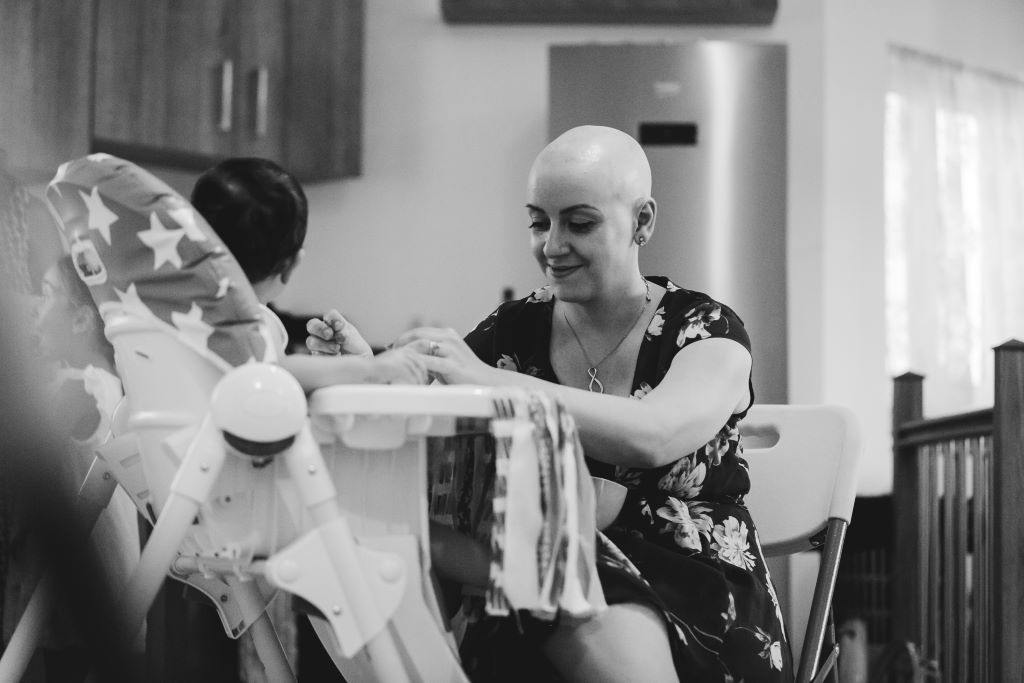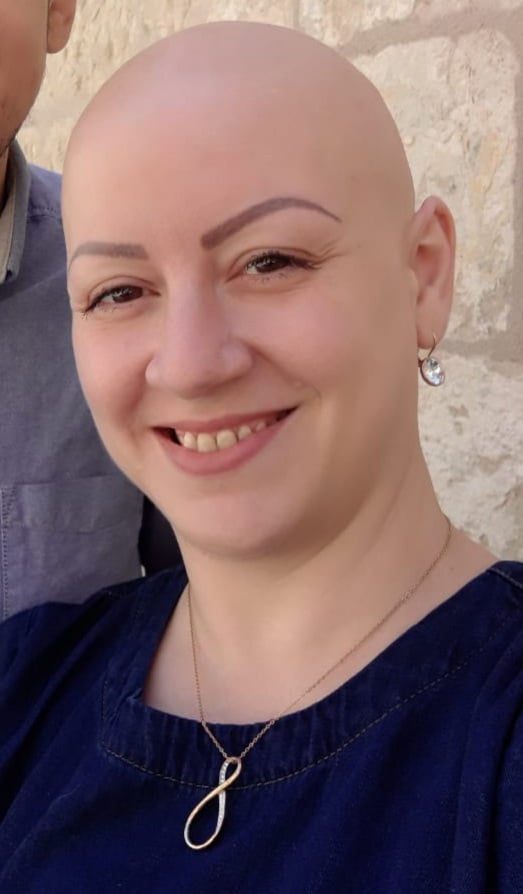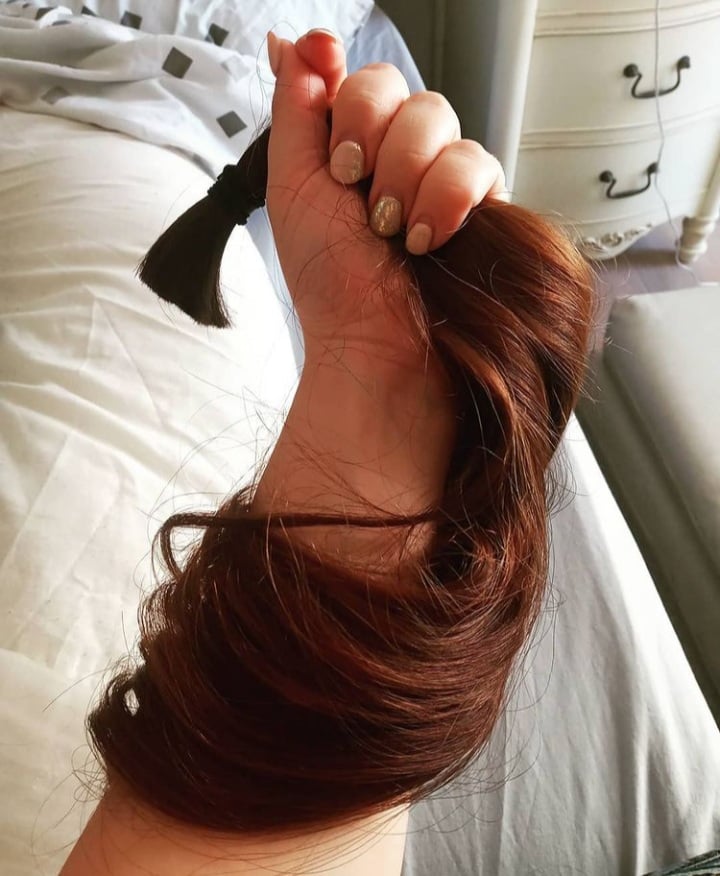
Alopecia Areata, seemingly an autoimmune condition, is characterised by isolated coin-sized hair loss patches on the scalp and/or the body caused by specific cells from the immune system attacking the follicle, blocking it from producing more hair. The first symptom of Alopecia Areata is usually sudden patchy hair loss that can grow larger, at times joining up. Certain individuals experience fast hair loss where all their scalp hair is lost without any patches appearing first. Some individuals also experience tingling, itching, burning, headaches or even pain in the skin along with hair loss.
Alopecia Areata does not cause permanent hair loss since the hair follicles are not destroyed, and so, there is the possibility of hair regrowth. However, once Alopecia Areata develops into Alopecia Totalis or Alopecia Universalis, the chance of full hair regrowth becomes smaller.
Alopecia Areata can be diagnosed by your doctor. Further tests such as trichoscopy or skin biopsy may be needed to confirm the diagnosis. Although there is currently no cure for Alopecia Areata, there are possible treatments such as corticosteroids and topical immunotherapy with no guarantee to work, that are more likely to be effective in mild cases. Certain individuals also experience spontaneous regrowth without any treatment.
Wham met up with Francesca Gatt Rossi, who was diagnosed with Alopecia Areata at the tender age of 7. Francesca agreed to share with us her own experience of living with this condition, especially since there is evident need for more awareness on the subject. Sadly, lack of awareness causes individuals with this condition to suffer in silence, alone. Hair loss is not only the result of certain treatments pertaining to illness. Alopecia can hit anyone, anytime.
Can you tell us a bit about yourself?
My name is Francesca. I am 32 years old and have had alopecia areata since I was 7 years old. Been married for 6 years and have a daughter who will be 3 years old this August. Our current hometown is Birkirkara, but I was raised in Valletta. I work in a government entity and I have started my own little Macramé business last year during the pandemic.

When did you first start to experience symptoms of Alopecia? Was it suspected immediately or did you have to undergo further testing to get diagnosed?
I do not remember much details as I was around 7 years old and my memory is a bit blurry. What I do remember is that it was after my First Holy Communion and while my mother was brushing my hair (had long fair hair), I hear her making like a shocking noise. She didn’t make a bit fuss but I felt something was not right. I remember going to a Dermatologist and him explaining everything to my mum. It was pretty clear from the start and I didn’t need to do any testing.
What was your initial reaction when you first got diagnosed with Alopecia?
I remember feeling numb. Being a child I was protected, I was kept in this bubble. I didn’t understand much because no one actually explained it to me directly. What I do remember is the puzzle I had to build myself to try and understand.
Along the years, my alopecia journey was like a rollercoaster. Patches would come and go, and with that different reactions depending on the age I was in. The older I got the more traumatised I would feel.
How did your family and friends react to your diagnosis? Do you feel it affected your relationship with them in any way?
To be honest with you, I have no idea who knew and who didn’t. Alopecia was a taboo. I myself didn’t know how to say it correctly, as there was no talking about it apart from when we had to go to the doctor or for treatment, and even then, as a kid I would just follow my mother and do what she tells me, just like every kid. I remember my mother buying all the thick headbands she could find to help me hide it. I actually really liked them!
Growing up was when the problems started. None of my school friends knew and, everyone remembers their teenage years, a nightmare irrespective of whatever condition you might possibly have. Not being able to experiment with your hair like the rest of your class, not being able to put on pig tails for your last day at school during your “crazy hair day”, is what I remember most. I somehow always managed to find an excuse and do something about it, but I lived in constant fear of judgment and paranoia. Thank God there wasn’t a big problem with bullies in my school, but I always felt inferior to the other girls and it showed in my lack of self-confidence.
The peak was reached when I was at University. Choosing where to sit during lectures gave me anxiety. Knowing that there will be people behind me staring at my head for a whole duration of 1 to 2 hrs used to make me paranoid. Constantly checking if my hair was all right, if I hear someone whisper and laugh I would just leave the room and see if I was the subject or not.
As much as I always tried to socialise I lived in fear and paranoia. But the worst thing about it was that there was no one I could open up to, so my emotions just kept piling on.
Some individuals with Alopecia report having experienced other effects, such as nail related complications. Did you experience this or any other related complication?
No I never had nail related issues, however being an auto immune condition, my GP always tells me that it is more likely for me to develop other auto immune conditions, which in fact I have. Thankfully all of which are treatable with little medication.
Based on your personal experience, which is the toughest impact that Alopecia has on those who have it? Is it social? Psychological? A combination of both? Or more?
The psychological impact is the worst in my opinion. Not being happy with who you are effects everything else. As a result, it will impact your social life too.
There is this one episode which I remember vividly. It was when I had gone to the dermatologist like a year before my wedding to see what can be done with the hope of saving my hair for the wedding day. And what I remember most was when he told me that this treatment will not be covered by my insurance because for the insurance agencies Alopecia is considered as “aesthetic”. I was speechless. This was the same period when I used to cry myself to sleep almost every night. My mental health was the worst it ever was. I was really depressed, angry and scared, and this comment was the cherry on my cake. I was furious. How can anyone judge anything like this? It is not just about the hair, it is about your personality and your mental health. To date this makes me really angry and I really wish this mentality changes soon!
What is your opinion in terms of awareness? Do you believe there is enough awareness about the condition?
Unfortunately, there is barely no awareness in my opinion. A lot of people still never heard of the word and this is not because it is a rare condition, but because it is still a taboo to talk about hair loss.
Unfortunately many tend to automatically associate loss of hair with diseases. This may obviously lead to unintentional hurtful or insensitive comments or questions. Did you experience such situations? And if yes, how did that make you feel? What do you think are phrases or words that one should avoid when talking to individuals with loss of hair?
It is true. Hair loss is usually associated with either chemotherapy or being a man. Even if we just look at adverts for hair loss products. You never see a woman let alone a child with Alopecia. I could never associate myself with any product because Alopecia is never mentioned.
Growing up I was so desperate that I used to wish I was ill, just because if I was, people will understand and will not question me. “If I was I wouldn’t need to hide anymore”, “If I was I will have options”, were some of my thoughts.

Since I lost all my hair and stopped wearing a wig, I am more comfortable with myself and this makes a big difference with how a comment will affect me. During these past years, there were quite a number of occasions when people would ask or assume I was ill. Some would very politely have approached me to give me courage, as they had passed through chemo themselves. I politely tell them I am not ill and explain the condition. It doesn’t bother me much to be honest. One time I remember a little girl asking her mother how come I do not have hair since I was a girl. Nowadays, these comments do not bother me and I will not blame this little girl or her parents, just because our society still makes us believe in stereotypes. I believe that the more awareness there is, the less such comments will be heard.
What bothers me on the other hand is whenever I visit Mater Dei. Almost every time something happens that make me furious. I understand that it may be protocol to ask if someone is undergoing any treatment, however I have had a couple of incidents when I was left very angry and speechless. One time was when I went to have my bloods taken when I was pregnant, and the receptionist kept insisting she needed to know which treatment I was having. She just couldn’t understand me in telling her that I do not, and if it wasn’t for another person who was with her in the reception area, she didn’t want to proceed. Another incident was when I had to undergo surgery and one of the doctors had never heard of Alopecia … I was shocked! I was like should I trust him? Is he even a qualified doctor?
Thankfully there are other great professional who understand when you are feeling uncomfortable and help you out. Which is great to balance things out. But having medical workers not aware of this condition, makes it more difficult in general and unacceptable in my opinion.
With regards to word or phrases to be avoided. It is difficult to pin point any words and phrases that may or may not hurt anyone who is experiencing hair loss, as this depends on the individual. I think we should just be kind to one another no matter what the condition or the situation is. Personally I am fine with talking about it and I am happy when people show interest as I take this opportunity to raise awareness, but it took me 20 years to reach this level of confidence, so I understand that not everyone is willing to share his experience.
What would you like to tell individuals who have just discovered they have Alopecia or who haven’t yet come to terms with the diagnosis?
All I can say is that there is nothing wrong with you, you did nothing wrong. It is yet another kind of loss that life throws at us. Take your time to grieve the loss and seek the help you need. Do not ignore your mental health as this is the most important.
I started my acceptance journal when I talked to two amazing women who went through Alopecia themselves. If I may, allow me to thank Charlene Mercieca and Sue Caruana. They may not even remember our chats, but for me they were life changing, literally.
There is no right or wrong way how to deal with the situation, and more importantly there is no time limit, but I urge you to first of all seek professional help for your mental health (I can never emphasis this enough), and talk to someone who has Alopecia just like you. Talking to people who understand your situation, because they have gone through it themselves, makes such a big difference. I know this will be tricky since it is such a taboo, but maybe you can ask your hairdresser to introduce you to someone. Every hairdresser will know someone. Also, If you would like, feel free to find me on my socials, I would love to have a chat.
What message would you like to convey to people who come into contact with, or who know individuals who have lost their hair for whatever reason?
I would like to send a little message to parents whom their children just got diagnosed with Alopecia. Talk to your kid and explain to them what is happening and that it is ok to be sad and angry about it, but in the end everything will be ok. It is just a different hairstyle, maybe not the one you like best, but it’s ok. It is also ok to keep it private, but let that be the child’s choice. I grew up with the idea in my head of having to hide because my parents told me so, and even though I know my parents did this out of love, now I know it did not help me in accepting my condition.
And a small message to parents whose children attend class with some other kid who has alopecia. Let us just be kind! Not having hair should not be any different than having brown or green eyes. Your children will not lose their hair if they play with them, and please stop any kind of comments. As a parent myself, I know how much children grab on our actions, therefore as parents we should support them emotionally as much as possible and educate them that in some ways we are different but in others we are the same.
Are there any NGOs or support groups in relation to Alopecia in Malta that you know of, which can provide support to individuals with Alopecia?
As far as I know there isn’t. Having a support group, a place where you can share your thoughts and experiences without fear of judgement and with people who will understand you completely is one of my dreams. I would love if one day, hair loss is treating normally as any other condition. If I may take this opportunity, if there is anyone interested in setting up such a group, please contact me. We can work together and maybe someday it will happen.
Reference
Alopecia UK (n.d.). Alopecia Areata. Retrieved from https://www.alopecia.org.uk/alopecia-areata on 22nd June 2021
Do you have an experience you’d like to share with us at wham? Contact us or send us an email at [email protected]
Claire Galea is a mum of three currently reading for a Degree in Nursing at the Faculty of Health Sciences, University of Malta, as a mature student. She is keen about holistic patient-centered care as well as public education about health-related subjects, which she frequently writes about on Wham as a Content Writer and Website Editor.
Claire is also passionate about spreading awareness on the negative effects that domestic abuse leaves on its victims’ mental, emotional, social and physical wellbeing. She is the author of two downloadable ebooks, namely Heal Your Life Forever and 5 Simple Steps To Creating The Life Of Your Dreams.
Click here to check out Claire’s full bio as well as a list of all her Wham published articles





